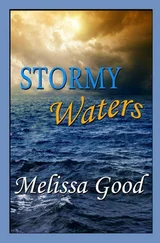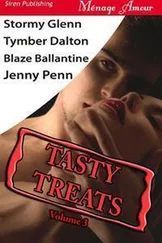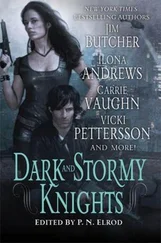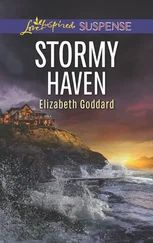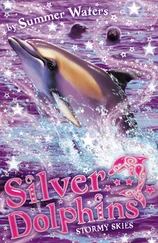She fought with the last of her strength against suffocation and suddenly plunged to her feet, back end up first and then the front and Ross jumped to get out of her way. She swung her head and knocked his hat off. He kicked it aside and kept one hand on her. She was swaying. “Good girl,” he said.
The prolapsed uterus, bound into a long column, hung from her rear end. He pushed it back into her, unwinding the bandage as he fed the internal organ back into the cave of her body. The smell of birth and its detritus all around him in the crisp and burning drought lands. He put his hat back on after he wiped his bloody fingers on his shirt. He stripped the slicker from the newborn bull calf, and got it on its feet, and milked the cow of some of the birth milk. He opened the calf ’s mouth and thrust it in. He stroked his hard fingers over the calf ’s eyes and dug matter out of its nostrils and wiped the matter on his cracked chaps.
“Come on, baby.” He held the calf between his legs, and pressed the teat at his mouth. “Come on, sport, I been waiting for you a long time.”
The calf sucked one suck and turned his head up to the empty blue sky as the heavy cream rolled down its throat. It opened its perfectly fitted mouth and closed it again and sucked again, and the stuff of the new world poured into its body and with a sort of finality it sucked again and was committed.
He waited for a while. Then he untied his horse and held the rein with one hand and picked up the calf with the other. He threw the off-rein over the horse’s neck and stepped up into the saddle. It was a clumsy thing to do with the little brush carbine sticking up out of the scabbard and the loose-limbed bull calf slipping under his arm.
The horse took in a deep breath of the wind to see what information might be riding down on it. Then he turned his head quickly to a clump of little live oaks and cedar. His ears were stiff as buckram. Something had come along already, probably a coyote or a fox, but nothing to challenge a man on a horse. The dog started off across the stony ground toward whatever it was, but Ross whistled him back. Then he lifted the reins and they moved off, downhill, the cow trailing after, bawling for her calf. He wanted her to walk very slowly or she would come apart again. They passed by the ravine where the government men had buried his shot cattle. Some of the skulls and bones were exposed, scoured by the dry wind.
AT THE BARN he put the cow into a stall and the calf in the straw beside her. His son helped to hold the cow while he took a jerrican and poured five gallons of water down into her uterus. The weight of the water would settle it and hold it in place until the tissues reattached themselves. He led the bay gelding into the fairway and shucked off the saddle and the rifle scabbard and the blankets and carried it all into the tack room and shoved it onto a saddle tree. He hung the bridle over the horn and turned the bay out into the lot. The bay had had a hard ride with double weight and wouldn’t be worth a crying dime for two days. He put his hand on the boy’s shoulder and they turned toward the house, where it drowsed under the bare limbs of the mesquite and the pinwheel of the windmill fan sailing stationary with its long blades. His gray stud Kat Tracks ran down the fence line and lifted his muzzle in the air with a feline curiosity to take in the smell of the new calf.
The cook came into the kitchen in his rubber apron.
“Yo, Jugs,” said Ross.
Jugs said, “What is it?”
“Bull calf.” Ross picked up a scrap of paper from the kitchen table. It had columns of figures on it and he smeared the paper with cow blood.
“Is that it?”
Ross tried to wipe off the paper. “That’s it.”
“No branding crew this year.”
“Nope. We can do it ourselves. Me, you, and the boy.”
He laid down the paper and then went upstairs to Miriam’s room. He searched through the drawers of her vanity for a little three-minute sand glass he had given her years ago. Brought it back from a trip to San Antonio. He found it in the second drawer along with a hank of ribbon. The Magic of Old San Antonio, the glass said. He blew the dust from it and took it downstairs and sat it on the kerosene stove and lit a burner. He filled a shallow pan with milk from yesterday’s milking and then broke three eggs into the pan and turned over the three-minute glass.
He heard shots from the barn; a twenty-two. Innis was shooting rats. They nested in the four-hundred-pound mohair bags, chewed holes in them and made themselves comfortable in the world’s most expensive fiber. There was at present no place to sell it except in the East. He turned to the kitchen table and again went over his figures. So much for the shearing crews and so much for the shipping and so much for a train ticket to Woonsocket, Rhode Island, where most of the mills were shut down by strikes. Several people had been shot dead by the police. He would keep taking whatever he could get and storing it if he could keep the rats from establishing entire rat cities and rat undernations in it. This was called betting on the come. He had lost all his cattle except seven breeding cows and out of them he had got the bull calf in the barn and four other heifer calves.
Someday the grass would come back, someday there would be a market for angora coats and sweaters, and the military would need mohair for uniforms and flight suits. If they got into a war the four-hundred-pound bags would move quickly. In the meantime he had a match for Kat Tracks and that should bring in some money. He smelled something burning and the cook ran in the door.
“Shit, boss, it’s boiled over and them’s the last eggs.”
Ross took the pan by the handle and walked to the back door and threw the smoking eggs and burnt milk into the hardpan dirt of the backyard. He said, “Well, at least I still got my whiskey.”
His son walked up with five rats by the tails. He stepped around the mess of burnt eggs and milk.
“Was that my breakfast?” he said.
“Yes.” Ross kicked the pan. “There’s grits.”
Jeanine sat in Abel and Alice Crowser’s kitchen and laid out the map she had drawn of the 150 acres of Tolliver land and where she would begin clearing scrub cedar, which acres she could rent. But he knew the fields as well as she did. He had been neighbors to the Tollivers all his life, and friends with her grandfather for many years and Jeanine understood that he had stood as guardian and steward to the lower fields all the years of their abandonment and kept them clear. He placed his square forefinger on the map and explained to her that all the properties along the Brazos River were in the main smaller acreages, for farming, while those away from the river and in the other parts of Palo Pinto and Comanche County were much larger and held for ranching. If there were some way to pump water to the fields from the river, and if people could afford it, why, they would snap their fingers at the drought.
He would lease the lower seventy-five acres from them for ten dollars a month and she could drive their tractor. His own land would lie fallow and recover. It was an old John Deere and she couldn’t wait to get her hands on it. Alice said Abel wanted to plow with the horses anyway and if she could afford the gas for it then it was all right with her. Alice’s white hair sprang up in loops. She leaned over and patted Jeanine on top of her head.
“We never had a girl,” she said. “It’s a wonder I ain’t dead from the washing. Couldn’t get the boys to help. Your mother said you are a great hand to sew.”
“Yes, ma’am,” said Jeanine. “I can sew.” She folded up her map.
“Better go see Mrs. Joplin at the Strawn store. Her grandson is marrying Martha Jane Armstrong and they have some silk they need made into a wedding dress.”
Читать дальше



